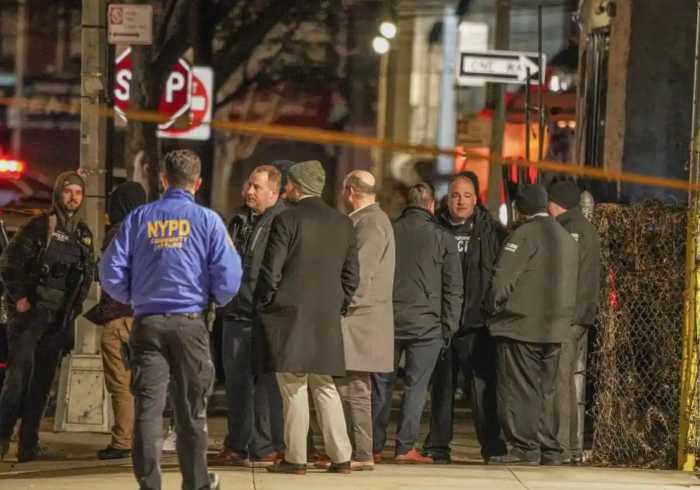The panel reportedly concluded the pesticide is not a carcinogen despite two vigorous dissents by panelists. EPA officials will now decide on the next step in the evaluation process.
Needleman seconded the view of toxicologist Dr. Brian Dementi, an EPA scientist who has studied malathion for the past 15 years and concluded long ago that it was a "low level carcinogen."
"I agree with Dementi that its a likely carcinogen," the professor of psychiatry and pediatrics at the University of Pittsburgh School of Medicine said.
He also joined with the EPA toxicologist in demanding the products removal from the market.
The repeated pesticide sprayings sparked dozens of protests and rallies against the substance by community groups in Queens. The borough was the main target of the airborne and ground attack on mosquitoes because the City discovered the outbreak started in College Point.
Soon after the unprecedented use of malathion from the skies and ground two summers ago, residents began reporting health problems on the City Health Departments telephone hot lines. A community uproar led to Giulianis decision to use a pair of milder pestcides last year. In a dissenting opinion, Dementi, charged that the "emerging neoplastic (cancerous) response in male rats cannot be discounted by the EPA… I accept these tumors as evidence of carcinogenicity."
Throughout his 25-page dissenting opinion, the toxicologist cast doubt on the findings of the full committee. Earlier, he asserted that the EPA had tried to freeze him out of the malathion debate in the inner circles of the regulatory agency. His union filed a grievance with EPA.
"We won vindication," he said. "The agency agreed to place my dissenting opinion on its web site."






























